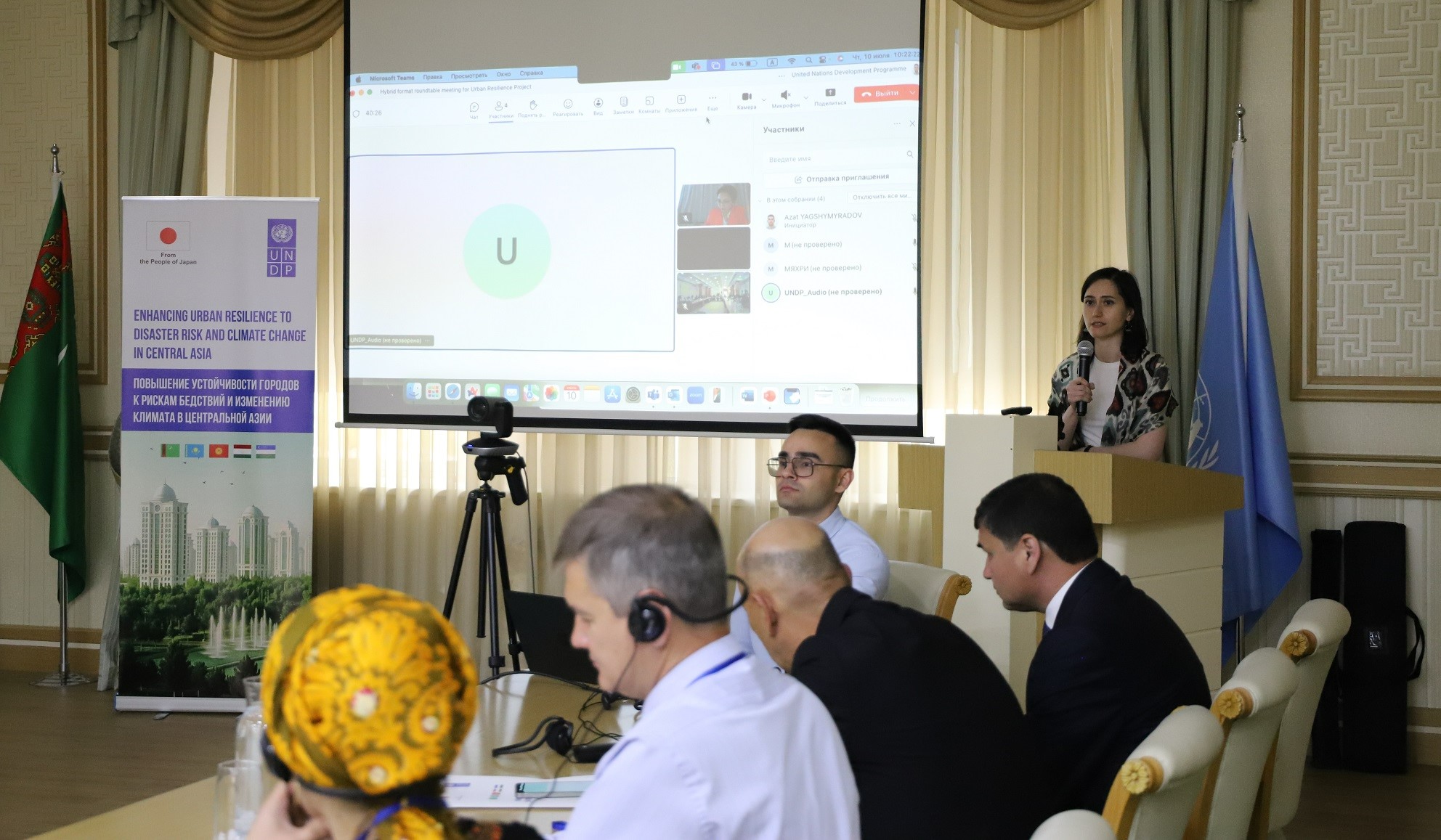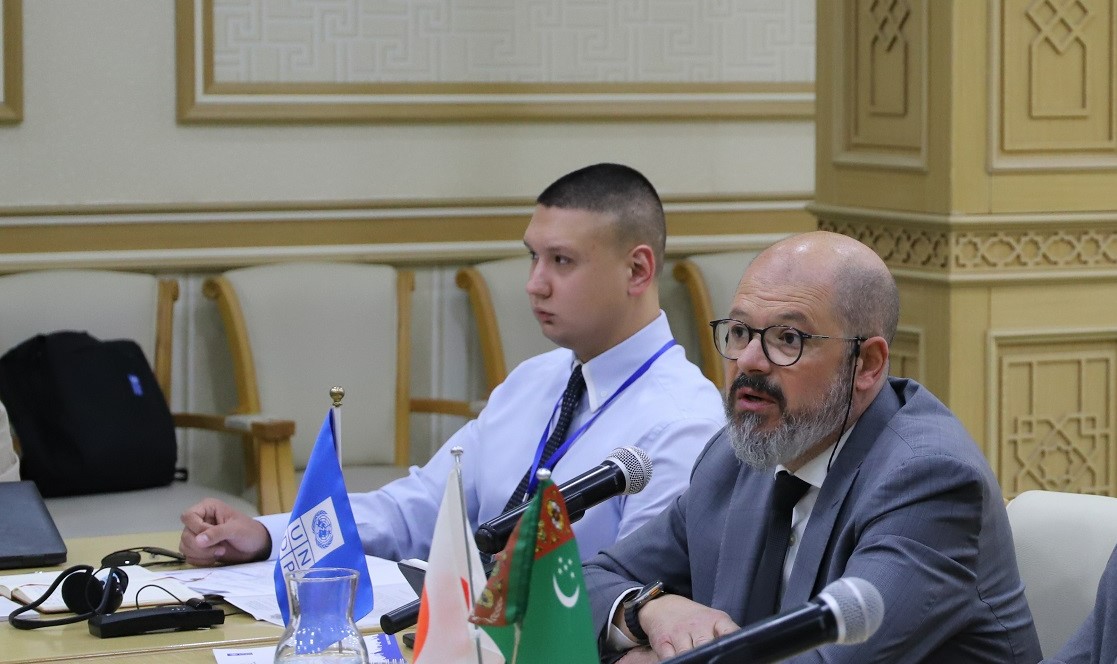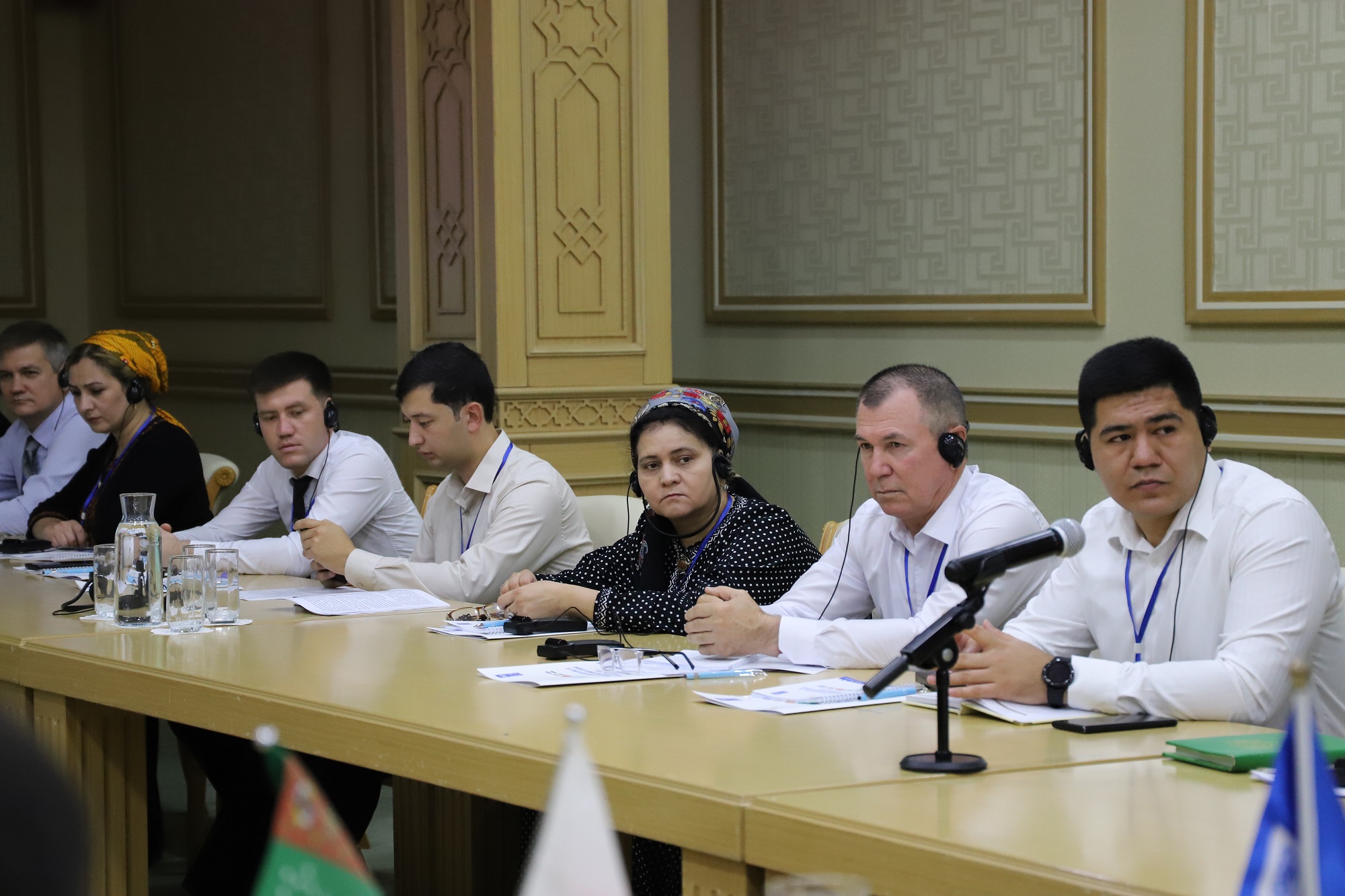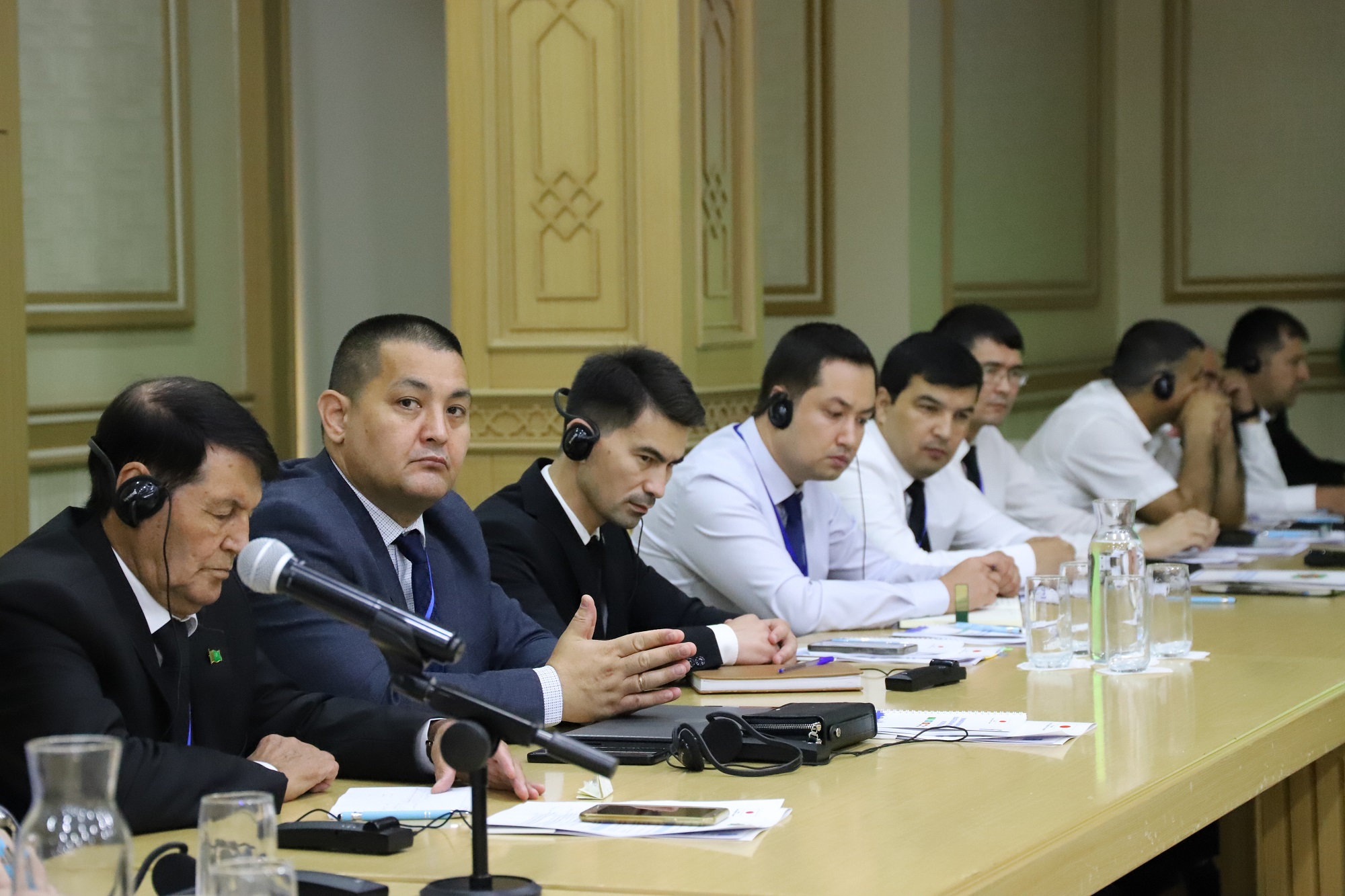New UNDP Regional Project Launched in Ashgabat to Strengthen Urban Resilience to Climate and Disaster Risks
11.07.2025 | 23:55 |The United Nations Development Programme (UNDP), in close partnership with Hyakimlik (Municipality) of Ashgabat, and with the participation of the Ministry of Construction and Architecture of Turkmenistan, organized an inception workshop as part of a regional project titled “Enhancing Urban Resilience to Disaster Risks and Climate Change in Central Asia”, funded by the Government of Japan. The project concept was introduced during the workshop held on July 10–11, 2025, at the UN Building in Ashgabat.
The workshop gathered a broad and diverse group of stakeholders involved in urban planning, climate adaptation, disaster risk reduction, and socio-economic development in Turkmenistan. Participants included representatives from the Embassy of Japan in Turkmenistan, municipal authorities of Ashgabat and its districts responsible for city planning and development, key national ministries such as Construction and Architecture, Finance and Economy, Environmental Protection, Agriculture, Labor and Social Protection, Defense, Education, academia and development partners. Experts from specialized institutions, including design institutes, scientific research centers, civil defense authorities, and organizations working on disaster risk reduction and seismic hazards, also took part.

In his opening remarks, Mr. Tomica Paovic, UNDP Deputy Resident Representative in Turkmenistan, highlighted the importance of this regional effort, indicating that: “The Central Asian region faces growing vulnerability to a wide range of natural hazards—earthquakes, floods, droughts, avalanches, and landslides—all of which have had devastating impacts on lives, infrastructure, and economic development. Building resilient cities is not only a complex task—but an essential one for the future of Central Asia.”

He noted that Turkmenistan is particularly exposed to natural hazard-related disasters, including earthquakes, sandstorms, mudflows, flooding, droughts, and desertification, especially in urban areas where rapid growth and structural vulnerabilities increase exposure.
The regional project team shared a methodology for integrating climate and disaster risk reduction (CDRR) into urban development, along with a self-assessment toolkit designed to support local authorities in identifying gaps and opportunities for integrating CDRR into urban development and planning processes.

The discussions addressed the current state of urban development in Ashgabat, key challenges and opportunities for enhancing urban resilience, and the vision for integrating climate adaptation and disaster risk reduction through stakeholder dialogue, including above mentioned project stakeholders, reinforcing the importance of coordinated and inclusive urban planning efforts.
During the two-day workshop, participants also reviewed a proposed initial framework for Ashgabat’s urban resilience roadmap and discussed the establishment of a technical working group and a proposed timeline to support its implementation.
The workshop concluded with a shared commitment to building a resilient, inclusive, and climate-smart future for Ashgabat—a vision that could serve as a model for other cities across Turkmenistan and the wider Central Asian region.

The Enhancing Urban Resilience to Disaster Risks and Climate Change in Central Asia project is funded by the Government of Japan and implemented by UNDP across five Central Asian countries from 2024 to 2027. It aims to enhance urban planning, strengthen climate adaptation, and reduce disaster risks amid intensifying environmental and climate-related challenges.
ORIENT











